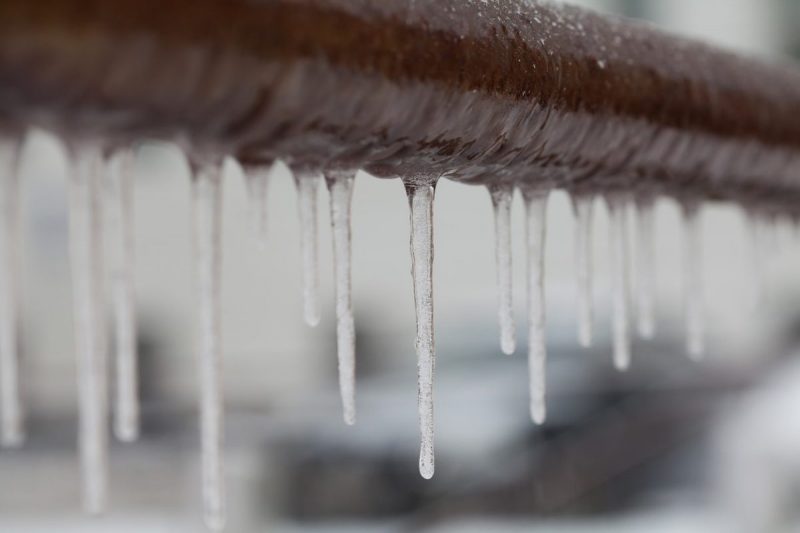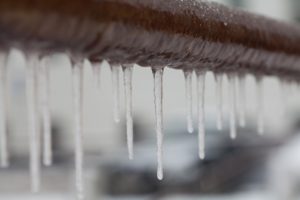Piping-Hot: How to Prevent Your Plumbing from Freezing This Winter

 Fall has arrived, bringing with it crisp weather, changing leaves, and some time to prepare before the cold winter months settle in. And while you may be looking forward to the coming holiday season, you should also be prepping to keep your house protected against the harmful elements.
Fall has arrived, bringing with it crisp weather, changing leaves, and some time to prepare before the cold winter months settle in. And while you may be looking forward to the coming holiday season, you should also be prepping to keep your house protected against the harmful elements.
Cold temperatures can cause your water pipes and plumbing to freeze up. Freezing in a pipe creates a lot of pressure throughout your house, causing them to burst at a moment’s notice, likely leading to major flooding through your home. The best way to get around this is to prepare against frozen pipes by keeping them warm enough to stay above the freezing point. Here are some quick and easy steps to get this done.
Make Sure Your Insurance is Up to Date
Having a well taken care of homeowners insurance plan will give you peace of mind during the colder winter months, or any time of year for that matter. A homeowners insurance plan provides the financial back up needed after something like a burst pipe or flooding takes place. While these tips are meant for preventing frozen and burst pipes, it still helps to have the right level of coverage in place to feel financially secure.
Keep It Hot
If you plan on leaving for a long period of time, especially during the holiday season where trips out of town are common, make sure that the heat is kept on in your property. While your utility bills may see an uptick, it’s just one trick to keep the pipes from freezing over, causing a major financial issue down the road. The heat doesn’t have to be kept too high, but keeping it above 50 degrees is good.
Take Advantage of Drippy Faucets
Usually, a dripping faucet makes for a major annoyance. But in this case, a dripping faucet can come in handy. By opening the faucets slightly, you are relieving some of the pressure in the pipes that run through your house. If a pipe freezes up, it’s the pressure that is the culprit of creating the blockage. Allowing the faucet to open up will prevent this pressure from building up, and will keep the pipes from bursting.
Seal Up All Cracks and Crevasses
Any gaps around holes where pipes run through walls or floors should be sealed. This is especially true where the hole is letting in cold air. Homeowners can use caulk or spray foam insulation to fill any gaps and, if possible, seal holes on both the interior and exterior sides of walls and floors.
Add More Insulation
Pipes that are located in areas that don’t have the right level of insulation, like basements and attics, may need some extra insulation installed to keep from freezing. If there have been problems in the past with freezing pipes, extra insulation could be the right way to go. Pipes can be fitted with foam rubber to help decrease the chances of any freezing taking place. Insulation can help keep a pipe closer to the temperature of the water inside the pipe itself, but it won’t add heat to the pipe.
About Byrnes Agency
At Byrnes Agency, we offer insurance solutions that can be tailored to meet your specific needs. Whether you’re looking for personal policies or commercial coverage, we have the right coverage for you. To learn more about our products, contact us today at one of our two locations.
If you’ve enjoyed what you’ve read here and would like to know when we’ve published a new blog post, please “like” us on our Facebook page, and share this with your Connecticut neighbors.
Phone: (860) 774-8549
394 Lake Rd
Dayville, CT 06241
United States
info@byrnesagency.com
Hours of Operation: Monday- Friday 9:00am-5:00pm
Phone: (860) 886-5498
6 Consumers Avenue
Norwich, CT 06360
United States
info@byrnesagency.com
Hours of Operation: Monday- Friday 9:00am-5:00pm
Tags: Byrnes Agency, Frozen Pipes, Home, Home Insurance, Homeowners Insurance, personal insurance, Winter
